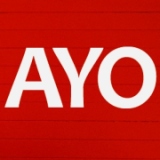How do we design our programme content?
Occasionally people ask me how we go about choosing programmes for the AYO. We have an Artistic Planning Committee made up of Antun Poljanich-Music Director, Cameron Stuart-Orchestra Manager, Anne Draffin-Artistic Facilitator, and myself as Chairman. We try to build a programme around a theme, or a major work by a great composer, choosing the other pieces to fit around and complement the major work. This can sometimes present quite a challenge, and much thought and discussion goes into it. We also generally like to include a concerto in a programme to give our young soloists an opportunity to perform at the Auckland Town Hall before a big audience. One of the soloists during the season will of course be the current winner of the AYO Soloists Competition, and for that concert we need to choose a programme which will complement the winner’s concerto.
Review of our February concerts…
The first programme of the 2015 season however presented a very different challenge. As it was not going to be presented at the Town Hall, but at smaller, more intimate venues in the Auckland region, it was decided to try something different. We started with a theme, which was Gallipoli and the Great War, but instead of presenting a big work, we chose a range of music which would highlight different sections of the orchestra (percussion, brass, and strings) and cover over 500 years of music history. I personally think it turned out to be one of the most interesting programmes I have heard at any concert for a long time, and many people went out of their way to tell me just how interesting and moving they found it.
It was the first time the orchestra had visited Waiheke and Devonport, and at both venues we had to find extra chairs to try and seat the numbers of people who turned up after the halls were full. It must have been fascinating for the audience to be able to see the orchestra close up in such intimate surroundings. Of course the acoustics in such small venues cannot be compared to the Town Hall experience, and one or two of the pieces really needed more space to be heard to full advantage, but there was a real community feel and a great atmosphere at the concerts. I also found the poems, read by members of the orchestra, gave an extra dimension and added meaning to the choice of music being played. It was a sobering thought to realise that so many of the soldiers who died in that horrific war were no older than the young musicians who were playing so beautifully for us.
|
|

Borodin & Dvorak …
Of course our next programme is not only about the Shostakovich, exciting as that may be. It also includes Borodin’s colourful Polovtsian Dances and Dvorak’s 9th Symphony ‘From the New World’, two pieces much loved by audiences all over the world.The works which Dvorak wrote in America are among his most successful including, as well as the 9th Symphony, the ‘American’ String Quartet and the Cello Concerto. There was clearly something very positive about his American experience which inspired him to create such a string of masterpieces. By the way, it is not generally known that much of the music in the symphony came from sketches he made for a projected opera, ‘The Story of Hiawatha’. The dance of Pan-Puk-Keewis lies behind the Scherzo, and Minnehaha’s funeral may be the inspiration behind the beautiful slow movement. Of course he was also influenced by African American spirituals which are said to have made a profound impression on him.I have been receiving feedback that the AYO musicians are really enjoying learning this work, which is clearly as fresh today as when it was first performed to rapturous reception at Carnegie Hall in 1893, and so I look forward to seeing you at what I am sure will be another most enjoyable concert.
|

